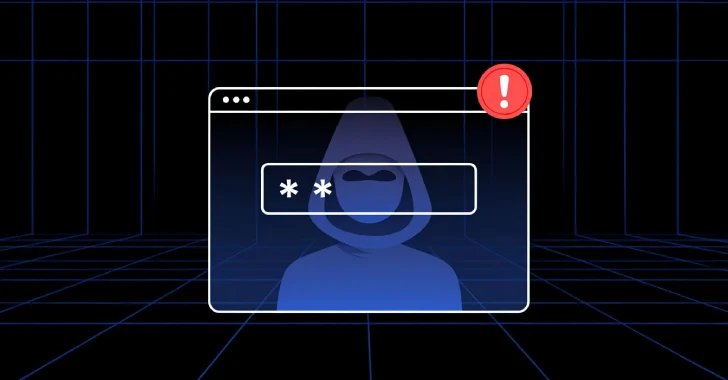Fast Facts
-
Evolving Malware Campaign: North Korean threat actors are refining their tactics with updated cross-platform malware OtterCookie, now in versions v3 and v4, stealing browser credentials and sensitive files since its initial detection in September 2024.
-
Contagious Interview Scheme: The campaign, linked to North Korea’s Lazarus Group, employs deceptive job interview tactics and malware delivery systems—like fake driver updates—to establish persistent command-and-control channels and exfiltrate sensitive data.
-
Sophisticated Recruitment Tactics: North Korean operatives are increasingly infiltrating companies in Europe and Asia using AI-generated profiles on job platforms, exploiting vulnerabilities to secure employment and fund state-sponsored activities, notably weapon programs.
- Urgent Need for Enhanced Security: Organizations are advised to implement rigorous identity verification procedures and monitor for insider threats to counter the growing sophistication of North Korean cyber operations and protect sensitive information from fraudulent employees.
What’s the Problem?
The Contagious Interview campaign, orchestrated by North Korean threat actors, showcases a sophisticated evolution of cyberattacks through updated versions of the cross-platform malware OtterCookie. NTT Security Holdings reported that this malware, which has been operational since September 2024, now includes capabilities to pilfer sensitive information from web browsers and cryptocurrency wallets. The campaign, attributed to the Lazarus Group—a notorious organization linked to North Korea—leverages deceptive online tactics, like fake job interviews, to infiltrate organizations globally. Recent findings reveal that updated variants of OtterCookie, specifically v3 and v4, introduce enhanced modules for credential theft and data extraction, raising alarms among cybersecurity analysts regarding their persistent and adaptable methods of infiltration.
The implications of these cyber activities extend beyond mere theft; they are part of a broader strategy to sustain North Korea’s economic and military objectives while evading international sanctions. Companies such as Kraken have reported near-successful infiltration attempts masqueraded as legitimate job applications, highlighting the increasing sophistication of these threat actors. Meanwhile, cybersecurity entities like Sophos and Moonlock emphasize the urgent need for robust vetting procedures and awareness of these evolving threat landscapes. As North Korean operatives, often utilizing fabricated online personas, continue to infiltrate Western businesses, the potential for significant data breaches and operational disruptions underscores the critical need for adaptive cybersecurity measures.
Risk Summary
The evolving threat landscape posed by North Korean threat actors, particularly exemplified by the Contagious Interview campaign and the OtterCookie malware, signals substantial risks to businesses, users, and organizations globally. The sophisticated nature of this malware, which can extract sensitive credentials and data across various platforms, heightens the potential for widespread credential theft and identity fraud, jeopardizing the integrity of not just individual companies but also entire sectors. As these actors refine their tactics—utilizing layered strategies that include impersonation of legitimate IT workers—the ramifications ripple outward, potentially enabling data breaches that compromise sensitive information and disrupting operational continuity for numerous organizations. Moreover, the risk extends to customers and clients, as any breach could lead to financial loss, erosion of trust, and legal repercussions, culminating in a cascading effect that underscores the critical need for robust cybersecurity measures and vigilant candidate vetting processes.
Possible Action Plan
In an age where cyber threats evolve incessantly, the urgency of addressing vulnerabilities such as those highlighted in ‘OtterCookie v4 Adds VM Detection and Chrome, MetaMask Credential Theft Capabilities’ cannot be overstated.
Mitigation and Remediation
- Implement network segmentation
- Utilize endpoint detection and response (EDR) solutions
- Enforce strict access controls
- Regularly update and patch software
- Conduct employee training on phishing and credential security
- Monitor for anomalous activities and alerts
- Invest in robust backup solutions for critical data
- Employ web application firewalls (WAF)
NIST CSF Guidance
The NIST Cybersecurity Framework (CSF) emphasizes proactive risk management. Specifically, organizations are encouraged to identify, protect, detect, respond, and recover (IPDRR) from threats. For in-depth strategies, refer to NIST Special Publication 800-53. This framework serves as a critical resource in establishing resilient cybersecurity postures while addressing the vulnerabilities presented by threats like OtterCookie v4.
Explore More Security Insights
Discover cutting-edge developments in Emerging Tech and industry Insights.
Learn more about global cybersecurity standards through the NIST Cybersecurity Framework.
Disclaimer: The information provided may not always be accurate or up to date. Please do your own research, as the cybersecurity landscape evolves rapidly. Intended for secondary references purposes only.
Cyberattacks-V1

